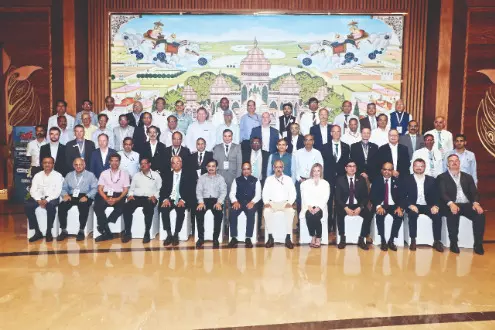DFCCIL hosts first Global Heavy Haul Seminar

NEW DELHI: The Dedicated Freight Corridor Corporation of India Ltd (DFCCIL), under the Ministry of Railways, launched the inaugural Global Heavy Haul Seminar 2025 at Bharat Mandapam, New Delhi.
Held over two days on June 20–21, the global event brings together leading experts, industry leaders, and global institutions to explore advancements in heavy haul freight with a special emphasis on predictive maintenance and sustainable infrastructure.
Themed “Beyond Construction: Sustaining Heavy Haul Networks with Predictive Maintenance”, the seminar marks a strategic shift from infrastructure development to long-term network optimisation and performance sustainability.The event opened with a welcome address by DFCCIL Managing Director Praveen Kumar, who acknowledged the presence of senior railway officials, including Board Members Naveen Gulati, Brij Mohan Agrawal, and Hitendra Malhotra, as well as dignitaries from RDSO and Northern Railway.
Prominent international participants included Kari Gonzales (Chair, IHHA), Antonio Merheb (Vice-Chair, IHHA), Siegfried Fink (Managing Director, Plasser India), and Prof. Ravi Ravitharan (Monash Institute of Railway Technology). A technical compendium highlighting key insights and global best practices was released during the inaugural session. A special session on rail-wheel interaction will be held at the Heavy Haul Institute (HHI) in Noida, led by Wesley Thomas of Loram Inc., in collaboration with DFCCIL and Railway Board officials.
The seminar features five focused technical sessions and a high-level panel discussion. Topics range from global innovation strategies, rail integrity, emerging technologies, interface design, and Indian case studies on lifecycle management. Notable speakers include executives from MxV Rail, Sperry, Plasser & Theurer, Loram, Pandrol, Ensco Rail, and DMRC. DFCCIL, a Schedule ‘A’ PSU under the Ministry of Railways, plays a key role in transforming India’s freight logistics landscape by constructing high-speed, high-capacity freight corridors that aim to decongest the national rail network and improve efficiency.



